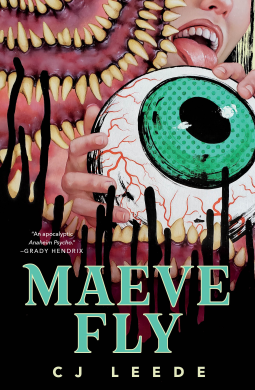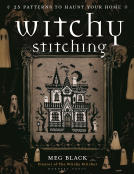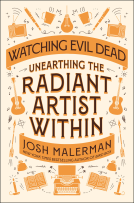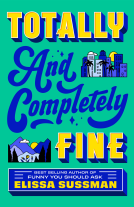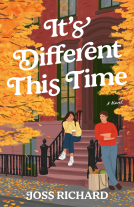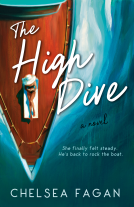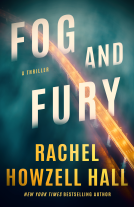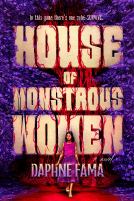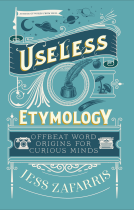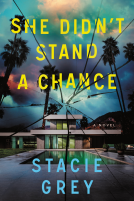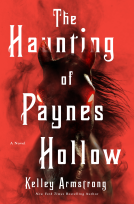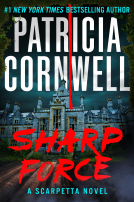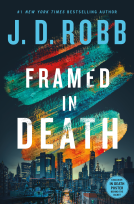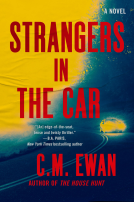Maeve Fly
by CJ Leede
You must sign in to see if this title is available for request. Sign In or Register Now
Send NetGalley books directly to your Kindle or Kindle app
1
To read on a Kindle or Kindle app, please add kindle@netgalley.com as an approved email address to receive files in your Amazon account. Click here for step-by-step instructions.
2
Also find your Kindle email address within your Amazon account, and enter it here.
Pub Date Jun 06 2023 | Archive Date Sep 30 2025
Tor Publishing Group | Tor Nightfire
Talking about this book? Use #MaeveFly #NetGalley. More hashtag tips!
Description
A USA Today bestseller!
Winner of the Golden Poppy Octavia E. Butler Award • Winner of the Splatterpunk Award for Best Novel • A Bram Stoker Award Nominee • One of Esquire's Best Horror Books of the Year • An Indie Next Pick!
"This is gory and brutal and beautiful and painful and terrifying and a pure delight."—Stephen Graham Jones
A provocative and unforgettable debut that is both a blood-soaked love letter to Los Angeles and a gleeful send-up to iconic horror villains, Maeve Fly will thrill fans of slashers and the macabre.
By day, Maeve Fly works at the happiest place in the world as every child’s favorite ice princess.
By the neon night glow of the Sunset Strip, Maeve haunts the dive bars with a drink in one hand and a book in the other, imitating her misanthropic literary heroes.
But when Gideon Green - her best friend’s brother - moves to town, he awakens something dangerous within her, and the world she knows suddenly shifts beneath her feet.
Untethered, Maeve ditches her discontented act and tries on a new persona. A bolder, bloodier one, inspired by the pages of American Psycho. Step aside Patrick Bateman, it’s Maeve’s turn with the knife.
"An apocalyptic Anaheim Psycho." —Grady Hendrix, New York Times bestselling author of How to Sell a Haunted House
Also by CJ Leede:
American Rapture
Advance Praise
“An apocalyptic Anaheim Psycho, a guidebook to the dead spaces of Los Angeles, a Hollywood black mass, an occult ritual that cracks the earth, Maeve Fly oozes enough anguish, alienation, and angst to drown the world.” —Grady Hendrix, New York Times bestselling author of How To Sell a Haunted House
“This is gory and brutal and beautiful and painful and terrifying and a pure delight. Child of God has nothing on Maeve Fly. But I think they might be cousins. Just, let’s not let them Mickey and Mallory across the world, ok?” —Stephen Graham Jones, New York Times bestselling author of My Heart is a Chainsaw
"Maeve Fly is a revelation. It hurt to turn these pages, but I couldn’t stop. Maeve is every beautiful nightmare you’ve ever dared to dream. An unforgettable read."—Richard Chizmar, New York Times bestselling author of Chasing the Boogeyman
“Full of glamour and gore, this genre-rejecting debut is unlike any I’ve ever read.” —Jean Kyoung Frazier, Lambda Literary Award Finalist and author of Pizza Girl
“Leede presents us with a delicious anti-heroine. Her biting commentary on modern day life will suck you in immediately. Keep an eye on this rising feminist voice.” —Tori Amos, Grammy Award-winning singer-songwriter
“Thoughtful, wild, frightening, and fun. Leede’s anti-heroine makes for a heroically refreshing read.” —Rivka Galchen, author of Everyone Knows Your Mother is a Witch
“A shocking, wild, and sinister addition to LA literature.” —Liska Jacobs, author of The Pink Hotel
“A firecracker of a book that explodes in your hand before you realize you've lit it.” —May Cobb, author of My Summer Darlings
“Maeve Fly is one of those books that is many things at once: sensual, brutal, sly, joyfully unnerving, and a blood-soaked love letter to LA. But at its core it's a horror novel, and it scared the hell out of me.” —Keith Rosson, author of Fever House
“Our collective Hollywood fantasy gets the chainsaw autopsy it deserves in this deliriously indecent feminist slasher.” —Daniel Kraus, co-author of The Living Dead
“Sexy and gory all at once, Maeve Fly is a feminist masterpiece.” —Mina Seckin, author of The Four Humors
"Maeve Fly is a real trip of a book, and definitely not for the squeamish—but if you’re able to put on your big girl pants and look the nastiness of life in the face, you’ll find something special and sparkling here." —Tor.com
Available Editions
| EDITION | Other Format |
| ISBN | 9781250857859 |
| PRICE | $26.99 (USD) |
| PAGES | 288 |
Available on NetGalley
Featured Reviews
When I saw this cover I requested it without
even reading the description. Grady Hendrix had blurbed it “An apocalyptic Anaheim Psycho" and that sold me immediately.
Our main character Maeve is a serial killer who works as a Disney princess at the happiest place on earth. When she's not at work bringing laughter to little girls she's exposing strangers secrets on the internet and cutting of mens ears to make custom Mickey Mouse ears.
Maeve is thriving in Hollywood among all the fakes
maintaining a perfect double life until she meets Gideon her best friends brother. He seems to see through Maeve's facade but what would happen if he really saw all of her..
I don't know how to describe it better than Henridx. This truly reads like a west coast love letter to American Psycho. There were a couple moments in this where I had to stop and settle my nerves so I could read the grotesque violence. But it also bizarrely made me cry for the psychotic Maeve. She was also hilarious and that helped lighten the mood of the book for me.
I'm definitely going to pick up a physical copy of this when it comes out next year. If you love horror, female villains, or enjoyed American Psycho you're not gonna wanna miss this one.
4.5/5
To start, I'd like to thank Tor Nightfire for the ARC.
This book gripped me on page one; I didn't want to put it down, and when I had to, I found myself wandering back to Maeve and her horrifying yet fascinating personality.
Leede's writing is brilliant. She really captures the essence of a late twenty-something in Anaheim, CA with the notion that they are other, superior, a lone wolf. Her descriptions were visceral and disgusting, and I mean that in the best way possible. Though the book isn't overflowing with gore, there is a fair amount of it, and it is done with finesse and tact.
While I enjoyed the story, I would have preferred the ending to be less obvious. However, despite being predictable, I thoroughly enjoyed Maeve's journey into madness and debauchery from beginning to end.
I'd recommend this book to anyone who loves thrillers set in California and female serial killers.
This was what I wanted. I was looking for something spooky and off the beaten path that I could be absolutely addicted to reading and this gave me all of that. Amazing story!
Thank you, Tor Publishing Group, Tor Nightfire, for allowing me to read Maeve Fly early!
This debut was gloriously gory and horrifyingly captivating.
Holy hell... that's what I thought several times while reading this delightfully debauched and terrifyingly surreal novel.
Maeve is 27 years old and works as a princess at a certain theme park (never really mentioned by name but you'll know). Oh, she's also a sociopathic serial killer as well! Yeah, this book pulls out all the stops as it's written in first person from her perspective. This makes for an extremely unsettling but page turning narrative as she is both antagonist and protagonist of her own story.
Very few authors would be able to have you feel sympathy for the "monster", yet this one manages to do just that. And you might feel a bit dirty inside as you feel that way, knowing the bloody exploits she performs as we stand by and observe.
But that's a very good thing in my opinion. I love a horror book that can bring this kind of emotion in such an unpredictable manner.
I absolutely devoured this book and I can't recommend it enough!
I AM OBSESSED WITH THIS BOOK! Frozen meets Carrie meets American Psycho. I was seeing mixed reviews but this blew me away. Most criticism says it was less horror and more romance but I could not disagree more. This was absolutely depraved in all the best ways. There is a love story of sorts, but it doesn’t dominate the plot and serves as more fuel to the fire that is Maeve.
This book is also a love letter to Los Angeles. I’m also an LA transplant and I love everything about this city - the history, the culture, all of it. I loved seeing the city and so many familiar places through her eyes. The presence of a drunk, violent maybe-Johnny Depp was a surprising, but not unwelcome addition. It added a melancholic depravity to the story.
The Disneyland culture is also a big part of the story. The theme park is like an LA rite of passage - you either sneer at it or let it become a huge part of yourself (I’m the latter). I loved the descriptions of the park, Maeve moving through it.
The horror itself is absolute insanity, Leede holds nothing back. If you like body horror, this book is for you. Maeve is angry, a force to be reckoned with. But she is also so, so alone. The use of Elsa was brilliant symbolism and we see what she could have been.
I will 100% be buying a physical copy of this book, likely to be furiously annotated. It will be released to the public on June 6, 2023.
 Dee B, Librarian
Dee B, Librarian
What fun for a horror fan! Funny, scary, gross, and touching, all set in Hollywood. Truly a horror fan's dream.
WHOA. I finished this in three days because I just couldn't put it down. The writing style is very flowy and easy to read, and I really loved the obvious allusion to Disney World. The last fourth-fifth really ramped up to. I enjoyed seeing Maeve's relationships through her perspective. Plus, who doesn't love a female sociopath?
Maeve Fly isn't like other women. Raised by her old Hollywood grandmother in Los Angeles, Maeve accepts that there are few people in her life who will ever truly see her. She isn't perturbed by this realization. After all, she's got an amazing job at a theme park as a princess, the companionship of her likeminded grandmother, and a single friendship with a rising actress. Except, everything is changing. Her grandmother is ill, her friend is on the path to fame and fortune, and a new manager has been hired to assess her work performance. On the brink of so many changes, Maeve is uncertain about what her future holds. Enter Gideon, the sexy hockey player who shows an interest in Maeve, but she isn't good at letting people in. What happens if Gideon finds out her secret?
Leede creates a visceral gore-fest for the reader to devour. The setting reads as a love letter to old Hollywood while exposing the underside of a city filled with dreamers. Maeve stands out as a complex character readers will struggle to dislike despite the skeletons in her closet. Her raw and honest characterizations plays well against the violent horror aspects of the plot, creating mixed emotions within the reader as secrets unravel and blood splashes. At the heart of this story is a universal truth: the desire to be seen as one really is, to not be alone. Readers who enjoy Chuck Palahnuik will find themselves loving the similar writing style and tone of Leede.
Absolutely incredible! Disturbing and funny and odd. Leede’s writing feels fresh and exciting, I ate this up and wanted seconds!
This. Is. the most. Fucked up. Book. I have ever read. And it is a work of pure genius and I loved every page of it. This is not a book for everyone, it is a specific horror that I don't even think all horror lovers will vibe with. But goddamn, this truly was like a more fucked up Psycho. Even a more fucked up, disturbing American Psycho (IMO). Like if this was made into a movie, I don't know if I personally could handle watching it. But as a book, incredible. I couldn't even try to put my thoughts into a cohesive line of words. Liiiike... am I fucked up for enjoying this so much?
 Kathleen N, Reviewer
Kathleen N, Reviewer
Hilarious. Violent. Brilliant. Feminist. Bonkers. There are a lot of words that can be used to describe Maeve Fly. This novel tells the story of a young girl in LA who lives with her comatose grandmother and works at an unnamed but very obvious theme park with her best friend. Maeve is a strange girl with even stranger interests. Her story is not for the faint of heart. I hope everyone enjoys this book as much as I did and I am eager to see more from this author.
 Travis P, Reviewer
Travis P, Reviewer
This was a fun, face paced, horror. I usually don’t like a lot of humor in my horror books, but I think this one does it well. Blood good time.
I enjoyed this crazy story. Good storyline , twisted, and fun. Look forward to more by this author. Unexpected ending
This book aches to be a female lead American Psycho type of novel, with protagonist Maeve Fly at the wheel. Maeve is obsessed with Halloween music, doxxing terrible people online, and her job at DisneyLand where she impersonates Elsa from Frozen. Maeve is indifferent to most people except for her best friend Kate and dying grandmother, a former Hollywood silent movie star, Tallulah Fly. I enjoyed Maeve’s journey although sometimes Maeve’s obsessions and edginess seemed forced. Most of the brutal scenes weren’t described in detail – we were only hinted at what would happen and it’d cut to black. For a book promising an edgy, dark character it kind of annoyed me (but I’m probably in the minority here) that we didn’t get to see more gore.
I read Story of the Eye in my early 20’s and have recced this book to many people (is this why they think I’m twisted?), and Maeve is obsessed with this book too. I must say, that I was supremely HAPPY that a certain scene came to fruition after the promise of the book’s cover. I would’ve been annoyed otherwise.
However, I did LOVE this book – so don’t take my little gripes at heart. I just love girl villains so want people to push the envelope when it comes to that. The final line of this novel though is PURE PERFECTION and I absolutely love it. In other words, I will definitely look forward to this author’s next novel!
A disturbing, shocking, uncomfortable, and brilliantly written debut, Maeve Fly is both a horror novel and a love story. A scathing critique of society and a vehement demand for feminine rights. With duality at its core, this novel explores the masks of normalcy we don in an attempt to hide the darkness that is humanity.
Leede takes us on a journey with Maeve through the glitz and glamour of famous theme parks and well-known strips while simultaneously exposing the greed and corruption barely hidden below the surface. As a reflection of this contradiction, Maeve, herself, embodies these extremes posing as a princess by day while harboring an ever increasing propensity for violent outbursts. As Maeve’s world begins to crumble, her sanity unravels, and everyone becomes a target.
Maeve Fly is the inversed Patrick Bateman, the psychotic main character of American Psycho. This story is written with complex ideologies and sophisticated language arming the reader with tools to dissect the world in which we live much as Maeve dissects her victims.
 Reviewer 1055070
Reviewer 1055070
Savage!! I just finished and I am speechless!! F*cking speechless!! Grotesque, brutal, I can’t write a review yet, but I will. I’m hyped up and **NO SPOILERS** THAT ENDING!!! It damned crushed me!! It’s perfect but it sucks EGGS!!!!!! I’ll be back. GOD, I can’t breathe!! I’m shaking. The RAGE!!! This was so fucking good!! I’ll be back…….
Thanks so much to NetGalley, Tor, and the author for this!! I don’t reread books, ever, but I will absolutely read this one again.
Deliciously unhinged and psychotic, Maeve Fly is a modern-day Patrick Bateman (American Psycho)! I loved every twisted element in this book, from Maeve's job as Elsa in Disneyland (or something like it), her crusade to dox conservative soccer moms online, and her love of Halloween. The backdrop of LA was the perfect setting for Maeve to exist- what better atmosphere to kill in where you're among the masses donning wolves' clothing? But, Maeve's not all bad-her dedication to caring for her ailing Grandmother drives her actions, but what dark secrets lies in the history of her Grandmother's life in Old Hollywood? I loved all the references to real-life places in LA, including the tar pits, and Viper Room, and the pace of the book really kept me on the edge of my seat. And let's talk about this amazing cover art! I was instantly drawn to it, and I'm not ashamed to admit that I do judge a book by its cover! TOR Nightfire continues to bring the best in horror year-to-year, and I'm so stoked to see what this author and the publisher put out in the future! Thanks NetGalley and TOR!
Whew!
This was a fun, gross, gory, horror book with romance.
I enjoyed the flow and pace of the writing,
and the LA scenery depicted. It is nice to read a female serial killer book (since most are male) and hear the inner thoughts of the killer as you read. This would make a fun scary movie and I think it will be a really successful book.
I will definitely be giving away a copy on my tiktok page @hauntedhousebooks close to debut time.
TYSM for the opportunity to read this ARC.
Maeve Fly
By C.J. Leede
Publisher: Tor Nightfire
Publish Date: June 6, 2023
Genres: horror, psychological horror, slasher
What you need to know:
Maeve Fly is a pretty princess. Really, her day job is that of a famous children’s ice princess character. Her best friend Kate is also a pretty princess. Maeve fills her days with Kate in the happiest place in the world, and her nights following Kate and her man of the month to strip clubs and dive bars, with her book, on the Strip in LA. Maeve is (dis)content until she meets Kate’s brother, Gideon, who seems to awaken a dark, primal fury inside.
My reading experience:
I was completely blown away by this book and Maeve’s character! The complex personality of Maeve is conveyed so well with her inner talk and her actions. Being a psych nurse I believe I may have analyzed Maeve a little more than the average reader might, but I was genuinely intrigued by her complexities, and truly impressed with how well her personality was developed and shown to the reader throughout. I will not use “unhinged” to describe Maeve, as I don’t believe that she just lost it. I believe Maeve is who she is; what she is.
This book is raw, brutal, and graphically violent and erotic. I applaud such raw honesty in writing.
The ending destroyed me… seriously, I’m still recovering.
I loved this book, I loved Maeve.
Maeve Fly was incredible. We follow the titular Maeve, who is so terrible and cool I couldn’t help but kind of like her (when I wasn’t absolutely horrified by her). This book is going to be a classic- absolutely will recommend it to horror lovers!
"There are many definitions of insanity in this world. One could argue that spooning a man’s eyeball out of the socket and performing carnal acts of religious desecration with it is insanity…"
Seeing this cover will either gross you out or excite you. It was both for me. It took things that are so normal and put them together to create something that will haunt your days. It’s beautiful and had my attention quick. I couldn’t turn my back on something that I knew was going to deliver something twisted.
Patrick Bateman would be so proud.
I am blown away by the craziness that is this book and I'm kind of in love. I keep saying that horror needs more females and C.J. certainly answers my demon-filled prayers. She makes you cringe, turns your stomach, and makes you laugh as she envelops you in a blood-soaked hug from the depths of hell.
The last 30% of this book was bonkers, and so incredibly messed up that I had to reread it. That is what made this book a true gem and highly recommendable.
"You are what you are, and no matter what you think, you cannot change it. A wolf is only ever a wolf."
I just reviewed Maeve Fly by CJ Leede. #MaeveFly #NetGalley
This book was SO GOOD!!!! I loved it! The ending was SHOCKING!!!
Where does one even start with Maeve Fly? I loved it! I genuinely absolutely loved it, but it took some time to grow on me. Perhaps like a fly laying eggs and it taking time to hatch, so this story has latched into my brain and created a swarm of interest second to none.
This book starts out slow and it took me a minute to determine if this was young to be something I liked. But just like the main character in this story, I sensed a darkness that I loved. This book is DARK and it's intense. It truly isn't for the faint of heart, but I think for those that don't mind some violence, some gore, and some mutilation. Go read this book because it's a slow descent into madness that will leave you hungry for more. Oh and did I mention the twist at the end will have you SCREAMING AS YOU FLIP THE LAST PAGE!!
Well behaved women rarely make history .. 🤩 wow this book had me in a chokehold! What a crazy ride I had so many moments of “did that just happen?”. Are main character is Meave , she works as a princess with her best friend. Her grandmother is one of the old beauty’s of Hollywood in the golden age. Life is good right? Wrong Meave has a dark secret at night she is anything but a delicate princess. Id like to describe this book as if American psycho and promising young women had a baby. What a complex character I found myself at times well most of the time cheering Meave on, even thought I should definitely not be lol which is the power of great writing!! I want more of this book! I will be recommending this book to anyone that will listen. Read this book, thank me later 🖤🖤🖤🖤
 Reviewer 861702
Reviewer 861702
Deliciously creepy, and un-put-downable. A story that kept building, and building and building in anticipation until it exploded. Absolutely loved it.
Wow. I’ve heard author CJ Leede has drawn plenty of inspiration from Stephen King. But I don’t think Stephen King has written something this dark. Maeve Fly throws readers into the mind of a warped Disneyland princess actor. Maeve has everything she could ever want, a best friend, her idol of her grandma, and a job she absolutely loves. But what happens if she starts to lose the things that tether her to sanity? Using incredible references, humor, and twisted description, Leedes has written something truly special for the horror genre. We are not worthy.
Let me introduce you all to a new friend of mine, Maeve Fly. But before you meet her you need to know a few things. For one, she’s a wolf in sheep’s clothing. So beware, she does bite and it’s way worse than her bark. And yes, she may be a princess at Disneyland but let’s be real at the end of the day, she’s got acting and Hollywood in her blood Just because she works at the happiest place on earth does NOT mean she’s nice girl. Actually, it’s probably safest if you don’t meet her in person at all. Instead you should probably just read about her through C.J. Leedes’ new novel Maeve Fly, it’s safest that way and trust me, she’s gonna be someone soon, just you wait , I’m always right!
Thank you C.J. Leede, this is in all honesty, my one of my favourite books I've ever read! Maeve Fly is the feminist monstrous antihero, I never knew that I needed. A far cry from the final girl archetype, Maeve is a clear decent of Pyscho and the 21st century female version of American Psycho's Patrick Bateman with a love of all things horror and halloween. A feminist take on the monstrous-self narrative told entirely through Maeve, and she simply wants to demonstrate in this dark and bloody tale how one can be monstrous without being a victim, esp. as female. I seriously recommend this book to anyone who's a fan of feminist horror, dark horror or american psycho. This is definitely for fans of blood and gore.
I got this book as an advanced reader copy from Tor publishers through Netgalley, and I loved this book so much, I definitely will be getting a hardcover copy for my horror collection when released in June because Leede's dark, and humorous writing style brought Maeve to life and I fell in love. Never have I related to a protagonist so much (not the murdering part), but the last of connections, isolation and feeling as though one is an outcast and alone surrounded by people who just don't understand you, and the social acceptability of provided to men for their behaviour and gender and social expectations narrowly confine what is deemed acceptable for women.
I highly recommend this book to anyone who ever wanted to take a utensil to some else's eye!
 Audrey S, Librarian
Audrey S, Librarian
For readers who grew up on Francesca Lia Block's Weetzie Bat, graduated to Bret Easton Ellis' American Psycho, and yearned for a hybrid--it's Maeve Fly, a heroine for the ages and the best Disney princess ever. Old Hollywood glamour and modern kitsch rule Maeve's life, and she's happy being her singular self, modeled after her grandmother (an old Hollywood icon) and owning her destiny. The fly in Maeve's ointment is Gideon. There's a difference between having your needs met and being understood, Maeve knows. And she'll never be understood. Right?
Maeve Fly is not for the squeamish, and the book pulls no punches. It's a fast-paced quick read that hits hard and absolutely delighted this reader. The (very successful) ending is why true horror romances haven't caught on in a big way. Can Maeve Fly have everything? It's all in her name. Give this to readers who prefer (old-school) Maleficent to Aurora and prefer their roses with bloody thorns.
Holy crap thisbook was mond blowing i dont even know where to start. Honestly i liked all the characters even tho some are crazy. But the writing was so good that this book read super fast. I will keep an eye out on this author now because this book is going to be the best book yet this year
 Madison M, Reviewer
Madison M, Reviewer
When I tell you that this book is the perfect recipe for a good horror/slasher I truly mean it. The mind of Maeve Fly, our main character, is so Dark and deranged yet she is so funny, witty, and intelligent. You know you should hate her but you can’t help but love her. The story is fast paced and I legitimately could not put it down! I wanted to stay in Maeve’s world and hear her thoughts. She is so unique and the story itself is so unique that I myself have never read anything like it. It’s gory and stomach churning, yet Maeve will have you laughing at the same time she is making you feel deeply unsettled by her actions. It’s everything I needed to pull me out of a reading slump and I will read anything CJ Leede writes. Maeve Fly is 2023’s new horror icon. 🪰
Don’t walk, RUN to get your copy when it is released in June, you will not be disappointed.
Thank you so much @tornightfire for the free copy 🪰
CJ Leede’s MAEVE FLY is a shock to the system, but the kind of shock I enjoyed. In this 288 page book, there is violence, blood-soaked gore, gratuitous sexual content, brutality, and utter depravity. The LA California setting is the perfect compliment to the front-row-seat debauchery. The characters are not likable or relatable, but they are captivating, and well written - especially our narrator Maeve. We begin with a more character-driven story of “getting to know” Maeve, then as the story progresses, it goes from intense to insanity. Maeve’s thoughts, perspective, and subsequent actions turn into the thing of nightmares - which is the most powerful aspect of the book. The music and literary references along with the feminist rage are my love language. The author’s mention of Dostoyevsky is…chefs kiss.
“Talking Heads’ “Psycho Killer” comes on the speakers. The Bartender heads to the back to get something, or more likely, to avoid us.“
As I said earlier, as the story goes on, Maeve makes (almost a crystal clear) decision to lose all moral compass. Pretty much where this killer quote lies: “I have tried the way of the misanthrope, the way of the deviant, the philosopher, the observer, the pretender. But there is one road I have not seriously considered walking down, have not permitted myself to. Perhaps it is time.”
The extreme nature of the cover art should give you a clue about its inner contents. Not to mention, as it states in the synopsis, the story is inspired by Bret Easton Ellis’ American Psycho - these two things combined should be more than enough to tell you if MAEVE FLY is for you. I am a big fan of American Psycho, so I wholeheartedly appreciate a protagonist of the female kind. But just to clarify, the two are not the same book - however the inspiration is there. The vivid imagery of Leedes’ descriptive prose remind me a bit of Natural Born Killers and Chuck Palahniuk (especially, my personal fav, Haunted). MAEVE FLY is extreme in every sense of the word, so enter at your own risk.
I was given an ARC of Maeve Fly in exchange for an honest review.
A must read for fans of horror, the dark and disturbed, and a delightful dose of feminine rage. Maeve Fly is what I picture the outcome would be if American Psycho had a love child with a hockey romance and raised said child on old-school slasher films. Which might sound weird, but it works. So. Well.
This is definitely one of the best horror books I've read in quite a while. The cadence between introspection, real life emotions, and true horror was phenomenal. I adored the narration style, and I loved being along for the ride as Maeve slipped deeper and deeper into depravity (and psychosis).
While the only word I can think of to describe my experience with this book is delightful, please note that it does toe the line of extreme horror in some instances, and despite Maeve's day job at the happiest place on earth, this is not a book of magic, true love, or morality.
Maeve Fly cares only about three things: her dying misanthrope grandmother, her beautiful best friend Kate, and her day job as the ice queen at the happiest place on earth. When her grandmother’s health takes a turn for the worst, and Kate no longer has enough time for her anymore… Maeve is feeling lost but Kate’s brother moves to town and “awakens” another side of Maeve.
Maeve is not a good person, but I understand a lot of her reasoning. And because of this I read this book in one sitting eagerly waiting to see what happened next. This book was so unintentionally funny, but I did genuinely enjoy all of the characters.
I would recommend this book to the people who love a woman vs the void type story, and morally black characters.
Although I will say this book is descriptive of sexual scenes, gore, murder etc. if you have a weak stomach this is not the book for you… considering one scene has Maeve wearing Mickey mouse ears…. Made with human ears…
That being said I think this was one of my favorite reads this year so far.
If you read the description of this book and still want to give it a shot, you will most likely have a good time with it. This book is dark, heavy, and not for the faint of heart.
This fucking book. Fuck this book. I can’t wait to re-read it. It was so good. I was hooked by the 4th chapter. CJ Leede is someone to lookout for if you love horror leaning towards the more extreme side.
 Margo M, Librarian
Margo M, Librarian
This book is a delightful, disgusting fever-dream. Maeve Fly is a book that disgusted me, and that's the highest praise I can give a book. As a huge fan of body horror and despicably awful women, I'm going to make sure my library purchases this book. I'm also going to be purchasing a physical copy for myself when available.
My only gripe with the book is actually stupid. The "nobody dies at Disneyland" thing has always annoyed me. Nobody is pronounced dead at Disney because they can only do that at hospitals, not theme parks. That took me out of the story because Maeve seems like the type of person that would know that. I loved all the little tidbits and nods to Disney Parks lore and the behavior of Disney Parks visitors. That's more of a dumb personal opinion than an actual issue I had with the book.
CJ Leede is an author to watch. I'm excited to see what else she writes. This is going next to Boy Parts by Eliza Clark in "books about unhinged women I accidentally recommend to my therapist." Stunning.
 Regina S, Reviewer
Regina S, Reviewer
Maeve Fly gripped me from the start, and refused to let go until the bloody end. The fact the Maeve was the exact character she so craved to see in literature was an amazing fourth wall experience for me. I have often lamented the tired trauma plot device to catapult female characters into action, as if female strength only manifest in the wake of male violence. Leede skillfully crafted Maeve to be a shockingly brutal character while somehow making her vulnerable. I found myself rooting for the serial killer, worrying over her well being, and ultimately bereft at the losses she experiences. Despite her psychosis she embodies the human condition; the need to connect and be seen, to find validation and acceptance, to live as your true self. Maeve is the secret desire of all women-to be able to move through the world as a wolf and not as sheep. I found myself revisiting the story in the night, as I lay sleepless, and I think it will be with me for a long time to come. Maeve Fly deserves nothing less than five stars and a place among feminist fiction on every shelf.
This review will post on Instagram on 4/17/2023
This is my new favourite book.
It has unhinged woman, it has revenge, it has romance, it has gory body horror, it has Disney, Halloween... I truly feel like this book was written for me and i'm obsessed.
This story follows Maeve. A "park" princess with icy hair and icy eyes. She's obsessed with Halloween and uses books to cope with life's problems. Her grandmother - who has also been her caregiver for most of her life - was a Hollywood starlet and Maeve worships her and all that she was.
Understanding there was always something a little different about herself - and her grandmother - Maeve works hard to keep her "wolf" hidden. Until she loses her job, loses her best friend and doesn't know how to carry on.
Once she figures it out...people will pay.
btw she figures it out...and people pay...and it's amazing.
I would be Maeve's best friend. I wouldn't get on her bad side...like not even jokingly or by accident...but i'd want her to have my back 100%.
Love this book. Love this character. This was an easy five stars and moved onto the list of favourite books.
Thank you Tor/Nightfire for the opportunity to read and review this digital arc.
 Reviewer 1041967
Reviewer 1041967
Many thanks to Tor Nightfire for the advance reading copy of Maeve Fly 🪰💚 As one of my fave books of the year, I recommend grabbing a copy as soon as it releases this June!
Review:
Maeve Fly hooked me from the start. Leede introduces the book’s narrator and sadistic leading lady as she acts as a princess in a Disney theme park. Maeve appeases park goers and families with her unique charisma and talent, which only elevates the disturbing nature of the darkness conveyed throughout the book. As many reviewers have stated, Maeve Fly presents as a gender bent American Psycho. However, Maeve is equal parts Patrick Bateman, American Mary, and May (amongst others). Leede blends these iconic characters and their unsettling desires to make one of the most original killers in the genre today. As a bonus, readers will find some familiar kills that are given a creative twist that sets Maeve Fly apart from the crowd. Enjoy a soundtrack of Halloween classics alongside “murders and executions” with this story of love, loss, and bloodlust.
Thank you to Netgalley and Tor for a copy of this eARC in exchange for an honest review!~
4.5/5 stars, rounded up to a 5
"We are what we are, after all. And I am a dead Playboy bunny and I am a fly and I am a wolf, and I am any wise man's worst nightmare."
Character - 9/10
Look, this is one of those books where you say you love the characters and people start giving you strange looks. So, let's just say I think of these characters often lol. Maeve is a face character at "the happiest place on earth", she also has her own dark passenger. Kate, Maeve's best friend, is her face character's little sister. and just as much trouble, if I do say so myself. Tallulah, Maeve's beloved grandmother, is the star of this show. With a presence like Jessica Lange, you know Tallulah was and still is a true badass. Liz, her overbearing boss, could not have been crafted any better. I literally went to school with someone, also named Liz, that is this very exact person. When she was described I literally screamed out loud. Gideon, oh man, Gideon. Definitely my favorite out of this group. I could go on and on about all of them but you'll have to pick this sucker up if you really want to know who they are.
Atmosphere - 7/10
The setting is pretty solid, this takes place in Los Angeles, but we have a few locations in particular that we really spend our time in. Obviously, we get quite a large portion of this book starring "the happiest place on earth" and Leede delivers. I'm not certain if she's worked there herself or not, but I practically felt like I was on the park grounds myself. Gideon's towering mansion, barely furnished, as it is far too big for one person to live in. My favorite part of this house is certainly the "sex dungeon", lovingly crafted. Or perhaps it's the locked room at the end of the hallway, the one you need to use the tiny key for. And last, but certainly not least, Tallulah's house. We learn the interworking of this house more than any location - my favorite either the Halloween decorations or the cellar.
Writing - 10/10
I initially didn't know if I was going to like Leede's writing style. It felt very vulgar and blunt, aggressive and sexual, but then again that's what this book is to a tee. After about 15% I really got comfortable with the style and it really pulls you in. She has a way of writing spicy scenes in a very intoxicating way and when you're least expecting it, a twist that leaves the reader feeling nauseous and uncomfortable. Hahahah, the sex scene on the ice really had me before I turned the page. I really hope this debut isn't the last we hear from CJ Leede.
Plot - 8/10
Maeve Fly definitely parallel's the vibes of American Psycho, but the female perspective really ups the ante here. Maeve is unhinged - raw, a wolf, a fly. Maeve is lonely, save for her beloved grandmother, her best friend Kate, and maybe Kate's hot brother, Gideon. Maeve is living life, doing what she has to to keep herself happy and the wolf from howling. One day, Tallulah's nurse says that it may be time to say her goodbyes and that's when everything changes for Maeve. Watch a downward spiral that you don't want to look at, but like a tragic accident, you can't bring yourself to look away from. Watch her run through her favorite book personas, until she takes it just a little too far and does something she will never be able to undo.
Also experience a wild game of Pretty, Pretty, Princess.
Intrigue - 10/10
The only reason I didn't finish this book in one sitting is because I didn't want it to end. I could barely bring myself to put this one down. I would have it pulled up when I was waiting in long lines, on my lunch breaks, as soon as woke up, truly whenever I could get the chance.
Logic/World-Building - 8/10
Takes place in real life so logic is pretty straight forward on this one. The only thing that is a bit suspicious is how easy it seems to be to get away with murder in LA.
Enjoyment - 10/10
I freaking loved this book. I really wish I could wipe my memory and read it from the beginning again. It made me horny, sick to my stomach, and absolutely devastated. Finishing this left me feeling like I left a part of myself in the pages (or perhaps those were just tears). Being lonely is such a devastating thing to be, both for yourself and especially for those around you.
Overall, I would give this an 8.86/10 or a 4.5/5 stars!
If you like really weird body horror, you're gonna like this. If the thought of Maeve doing exactly as the cover illustrates is not something you think you can stomach, then this is not the book for you lol.
Maeve Fly by CJ Leede is a horror book that begs the question, what would happen is you mixed Elsa with Patrick Bateman? The answer? A gory romp around Anaheim. I saw a few early reviews saying that this book was pretty wild and I am happy to report that it absolutely is and I loved it! It’s also a hard book to recommend because for a certain group of people, this will be a highlight of the year but it’s hard to say if it will appeal to a larger audience.
I loved being in Maeve’s mind through this book. She becomes increasingly unhinged and you just have to be along for the ride. I did enjoy the first 30 percent of this book just getting a feel for the writing style and the characters and then from 30 percent on, the story really takes off. There were paragraphs were I would laugh out loud and then cringe in disgust.
This book is surprisingly thoughtful at times as well. I found myself rooting for Maeve despite the fact that what she was doing wasn’t exactly the right thing. This story is the exact right length for what it wants to do as well. Any longer, and it could have been too gratuitous. It’s hard to go further into detail without possibly spoiling the book and this is one that is best gone into blind if you are okay with a lot of gore and violence. I would say this book really sits right on the line of horror and extreme horror so it could be hard to stomach for some people.
This book will be compared to American Psycho a lot and you definitely get that vibe reading this. Thank you so much to the publisher and netgalley for the opportunity to read and review this book ahead of its release. This was such a different horror book than a lot of other stuff I have read and I look forward to picking up a physical copy!
Maeve is a professional princess. Every day she dresses up as a certain ice princess and absolutely slays at the amusement park. But that’s not the only place where Maeve slays…
In a Hollywood Hills mansion that she shares with her former-starlet grandmother (who is now comatose), Maeve passes the time in devious ways. Her grandmother taught her how to survive as a predator and blend in, and Maeve needs guidance lately more than ever. She is struggling to keep her inner wolf at bay, and someone is leaving her mysterious offerings around the city. Are they gifts or bait?
LA is Maeve’s playground, and she’s got just enough privilege to get away with whatever the hell she wants. Mostly she just wants to dox people online, drink piña coladas in a dirty bar, and chill with her bff Kate, but a few unexpected events throw Maeve off balance, where she descends (or ascends if you ask Maeve) into her true form - a murderous, twisted villain with one foot in a blood-soaked pool of revenge and another testing the murky waters of a budding romance. Why is it so hard for serial killers to find true love?!
A savage, satirical tribute to Los Angeles, Halloween, and iconic horror villains, Maeve Fly is a delight for horror fanatics. Disgusting and disturbing, yes, but I loved it. I especially appreciated the many informative monologues about Halloween music and the nods to the genre’s worst-of-the-worst villains, like Norman Bates, Patrick Bateman, Bluebeard, and Hannibal Lecter. Maeve outshines them all and she knows it.
This is partially a work of body horror, so if that’s not your thing you REALLY will be upset by this book. But if it is, then step right up to this gory carnival of madness. The sex is as hot and nasty as the fresh blood and the soundtrack is terrific!
Thanks to Tor and NetGalley for the review copy!
I was deeply submerged in Maeve Fly all weekend— which is a book for anyone that’s a fan of f— up narrators, but especially if you want to watch one unravel.
Unlikable main characters have been a hit lately, though sometimes when I pick up a book, such as Big Swiss, there is something missing for me. A relatability, even though I never intend on going insane myself.
What Maeve Fly succeeds at doing is creating a tender core, or at least the illusion of one, to cushion the very gory blows.
If you want to read about a Halloween-obsessed sociopath, who loves her job as a Disney princess more than anything else…This is the book for you.
 Reviewer 1044287
Reviewer 1044287
Maeve Fly is a love letter to Halloween and old school Hollywood. It’s a whole mood and I’m kind of obsessed with it. By day Maeve is a princess at that happiest theme park on earth, off the clock she haunts dive bars book in hand living her best misanthropic life. But her perfectly crafted world starts to unravel after meeting her best friends brother Gideon. Speaking of that magical theme park Maeve works at, I’m super curious if the author also at one point must have worked for the mouse themselves because the way they describe the parks and park culture is so spot on. The dark humor, the emotion, the tragedy, the killer Halloween track list, I loved everything. It’s also solid horror. When it gets dark it gets really dark, in a fun way. I loved every moment and ordered a physical copy I could highlight and annotate before I was even done reading it, this is a novel I will absolutely revisit again and again. A really killer debut novel, excited for what C.J. Leede will write in the future.
Thank you to NetGalley and the publisher for a copy of this book in exchange for an honest review.
 Reviewer 1088386
Reviewer 1088386
Transcendentally Sinister! CJ Leede debut is a breath-taking choke leaving you gasping at the gruesome detailing web of Maeve, a deuteragonist, in her own right, living a double life in Los Angeles.
Images such as Princesses and beauty have power and we more often can fall under the spell. For some, it may come at a cost, more deeply rooted or satiated than one can comprehend: leaving you alone in solace.
The story was an elegant waltzing with decomposition and gore. Maeve held no personal desire back, and with the aid of Gideon and grandmother, Tallulah (amazing Tori Amos song, btw) she was wrestling with letting her true 'wolf' free.
There is detailed sex, which I am not shy about, and desires were explored and not shamed. Reading it in a book is like unlocking a private bedroom door, peering in at their 'darkside' and let's be real, I enjoyed the view.
C.J's writing was expository, graphic, and the characters were all well developed. Her tantalizing verbiage had me devouring the pages quicker and quicker as I progressed further into the book. CJ is a writer you want to watch.
This book will surrpise you. Sneak Peek for Maeve Fly is a must!
Thank you NetGalley and Tor Publishing Group!
 Ava D, Librarian
Ava D, Librarian
WOW this sure was a doozy of a book! Had to put it down and read something else a couple of times despite its relatively short length because it was just so intensely disturbing. I wish there had been more story happening within the park, but that's my only criticism. Much like Samantha Kolesnik's Waif, this made me feel like someone was punching my brain and I loved it.
That ending will stay with me forever. CJ Leede did an amazing job captivating my attention within the first few pages. The way Maeve progresses to her final horrific form
feels so reminiscent of many sanity lost stories but this one’s sooooo gruesomely hard to forget and will still in the depths of your souls until end of times.
i cannot wait to get my hands on a physical copy in a month!!!
THANK YOU NETGALLEY FOR THIS ARC
 Reviewer 771928
Reviewer 771928
"I see you" - There wasn't a sentence that haunted Maeve Fly more than anything in this world. She was seen, she was understood, but she did not care to acknowledge that. If she stopped for a second, she wouldn't be this haunted for the rest of her life.
She was a Disney princess, a good one. She liked her job. She never skipped a day. But deep inside, she was another person. Call it family trait or nurture over nature, she kept who she was behind locked basement doors like her grandmother. When her best friend's hot brother came into her life, closed doors were wide open and she was not ready for that.
CJ Leede nods to Stephen King in the acknowledgements, but this whole book was one big nod to Stephen King. I loved the imagination, the creativity, and the rawness of the characters. I'm waiting for ore from CJ Leede.
Maeve Fly.. Where do I start?! Theme park princess by day and dark, loner by night, Maeve Fly is struggling to come to terms with her grandmothers decline in health. Maeve begins caving to the side of herself that she's worked hard to contain.. And when she finally snaps under the pressure of losing everything that matters most, Maeve finds out who she really is when no one else is looking.
I loved this one. The first 30% was enjoyable but it was after that when things started to pick up. And that last 30%? Wild stuff. I went from “this isn't bad” to “this is pretty good” to “okayyy i'm loving this”. I can see how this won't be for everyone with the “extreme” horror/violence/gore/explicit sex but if you're a fan of that type of horror – don't miss out on this one. And our little sprinkle of a hockey romance? I can't even explain how this crossed over all of my favorite things. I love you, Maeve Fly.
 Book Trade Professional 1152347
Book Trade Professional 1152347
I was super intrigued by the cover and blurb and this did NOT disappoint! American Psycho meets Ottessa Moshfegh and Alissa Nutting, for a horror-loving audience who might love splatterpunk but has grown tired of its usual male edgelord lens. This book combined so many things that I love: Halloween vibes, unhinged romance, creative murders, a dark take on The Mouse Company, a scathing yet nostalgic look at Hollywood, and so much more. As the third act kicked off I found myself literally pumping my fist. Devoured it in a day, and definitely will be recommending it to other horror fans.
 Andrew T, Librarian
Andrew T, Librarian
Really captivating read, finished it in a day. Love the characters and the themes mixed with the glorious gore. Next time I hear ‘let it go’ it will have a different meaning!
This is an absolute masterpiece!
I👏🏻have👏🏻no👏🏻words👏🏻👏🏻👏🏻
Ok, nah, I have many words.
What do we have? Disney, old Hollywood, hockey romance, splatterpunk worthy gore, homage to some OG camp horror movies, vintage music hits, Halloween, recognition of some of the greatest fringe authors in history. I could go on. And, I will.
I honestly have never read anything like this, and I’m afraid my bar has been raised significantly. This book is written so beautifully. Even during the most depraved scenes the prose were on point! Such a tragic story dealing with identity, rejection, love, family, work - and it’s all wrapped up in a feminine ball of bottled up rage. 🤌🏻🤌🏻🤌🏻
Thank you NetGalley & Tor for this arc. I’ve discovered a new auto add author.
This was a horny, brutal, bloody, gory, romantic roller coaster. I’m absolutely crushed it’s over. This book brought me to a precipice and then tore me the f*** down. Visceral in the best and worst ways. I really just devoured this in two sittings. This writer had me in a choke hold. It felt like I was being force fed this book but I loved it. Absolutely horrifying and I couldn’t look away.
 Ashley I, Reviewer
Ashley I, Reviewer
You know how when you're watching a disturbing movie and get to a really intense part and you don't know how far they're gonna take it...so you squint and prepare to turn away if needed? That's how parts of this book felt like to me. And I'm not complaining. I loved it!
Maeve is a princess at the happiest place on earth...but she has a dark side. Her best friend's brother, Gideon comes to town and awakens this dark side. There's a slow, subtle buildup to the new Maeve, a bolder, bloodier one inspired by the pages of American psycho.
Maeve is absolutely brilliant, witty, and sadistic. She is now one of my favorite unhinged female characters. The pacing was perfect and how she slowly unraveled. There are literary and Halloween themes throughout the entire book and both were so well done! I especially loved that there was a Halloween playlist sort of sprinkled about. It was weird, dark, gruesome and full of rage. Highly recommend!
Thank you so much to Netgalley and Tor Nightfire for the advanced reader copy!
Maeve Fly is a princess at the happiest place on earth who harbors a dangerous secret. The angel-faced descendant of Hollywood royalty finds herself at home in the darkest corners of LA while taking care of her sick grandmother. When her best friend’s brother comes to Los Angeles, she struggles to contain the wolf among a city of sheep.
Please check content warnings before reading this book, there are some violent and graphic scenes!
“Where is the savagery in women? Where is the barbarism?”
This book was twisted, grotesque, hilarious, and devastating all in the best way. The first part of this book is very character-driven (which I don’t usually like) as we develop Maeve’s character from her strange and disturbing perspective. When she finally reaches the breaking point, she releases all the rage she keeps hidden inside. At this point, there are some pretty horrible and disgusting torture scenes that were a bit much for me, but I think demonstrated the breakdown of her character well.
I found this book darkly humorous and strangely romantic at times, despite some of the gross and horrific content. I think we all want to find someone who sees us for who we truly are without having to hide. I thought the ending was predictable, but no less impactful and jaw-dropping. I was sad when it was over because I felt like the book ended so suddenly and I had more unanswered questions. It could have been so much longer and I would have loved every second of it. I cannot wait for more books by C.J. Leede.
This is the perfect Halloween read if you’re looking for decoration ideas and a music playlist.
10 Stars⭐️ This book is for all the Goth Queens in a world of Disney Princesses. To the weirdos who exist on the edges. A love letter to LA and quaint dive bars. To year long Halloween parties. Maeve is everything I've ever wanted to be. This book is the story I needed. It's like a theme song playing in my heart. I found myself not wanting the story to end. I stretched it out for as long as possible. This is my protagonist. I want more. All of it. The good, the bad, the gory. Now I'm off to read a classic novel it inspired me to purchase, "Story of the Eye".
Readers who liked this book also liked:
Meg Black; The Witchy Stitcher
Arts & Photography, Crafts & Hobbies, Religion & Spirituality
